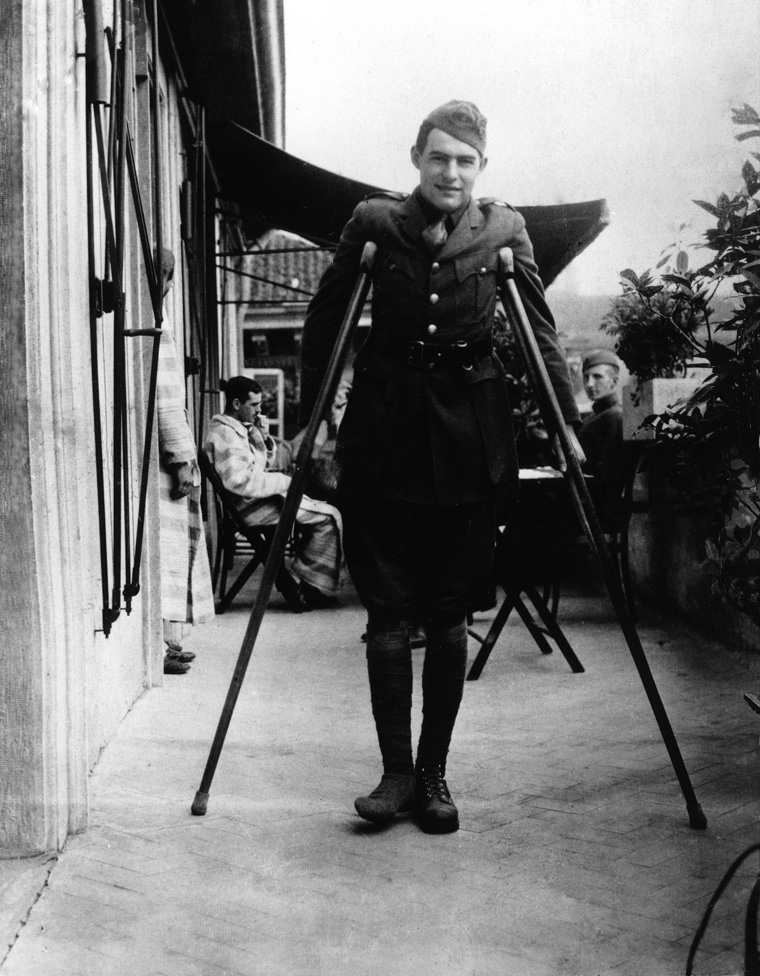Since returning from the war I’ve written a lot of different things and many of them are things that while true in a deeper sense did not actually happen and were invented by me. The principal works in this vein are detailed here. Where the work touches on my own experiences which is quite often people have said that they can see me in the text, which may be correct. My “biographical” characters as they call them are not strictly me, but people that I could have been.
1925 – in our time
A series of vignettes and short stories that are interconnected and tell the story of how things were before and during and after the war. I originally wrote them on a request from my friend Ezra Pound for Bill Bird’s Three Mountains Press. Later I expanded the work and have done so a few more times over the years. There are a number of parts to it, the war and journalism and bullfighting. The style owes a debt to Ezra, who introduced me to his ideas of Imagism.
1926 – The Sun Also Rises
My first novel (besides a sort of parody I wrote poking fun at Sherwood Anderson) based on some experiences I had with friends in the early 20s in Spain. There was an idea people had after the war and continuing to the present that men and women my age were destroyed by the war. Injured, certainly. I was, and so were many. But not destroyed. We had adventures and loved one another and got in fights that made us stop loving one another.
Originally I intended around this time to write about bullfighting. Something about the ritual of it and the way the fighters face death appeals to me. That’s their way of finding meaning in life. I’m writing about bullfighting now, years later, but at the time I wanted to write about the time I had with my friends and bullfighting serves as a catalyst for some of the things that happen.
1927 – Men Without Women
Even after finishing Sun I still had more to say about bullfighting and about relationships gone bad, and I found other things to write about as well. Besides bullfighting I became more interested in boxing. It’s a different kind of sport because you’re up against another man and not a force of nature. The critics hated this one. They like my writing as usual but they called it sordid and vulgar. I told them, in so many words, they were seeing themselves.
1929 – A Farewell to Arms
In this I circled back around to the war. There are bits and pieces of it in in our time but with A Farewell to Arms I gave it a much more solid treatment. Some of the characters that appeared in in our time you can even see in this one, though by no means all of them.

This is perhaps the novel that’s the most biographical– I took all my feelings about the war and the things I saw and did in Italy and meditated on them for a long time and eventually I felt I had to set it down on the page. You may notice that I do not live in Switzerland with the nurse I met during the war. It isn’t quite a biography of me but of someone who I could have been.